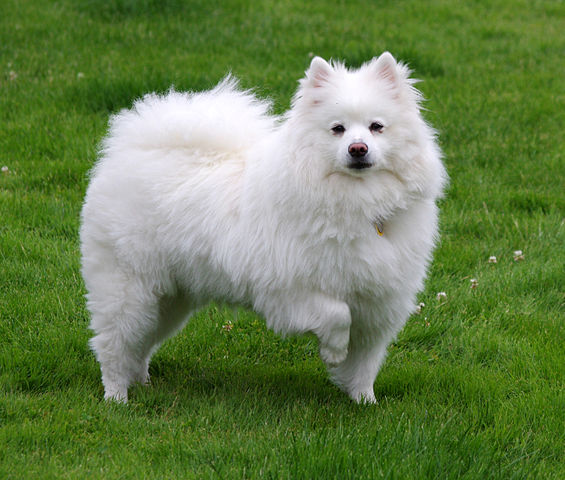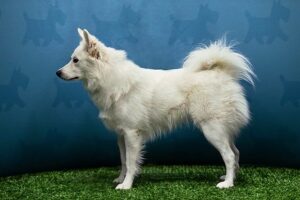The American Eskimo Dog is a spitz breed with quite the following of loyal owners and admirers. They come in three sizes; standard, miniature and toy, although none of the sizes ever get any bigger than 19″ at the withers. They are energetic and intelligent dogs who enjoy being near their families at all times. It is not uncommon for them to follow their owner from room to room. They are very playful dogs that love children, although the standard and miniature sizes are recommended over the toys for being sturdier.
Eskies, as they are affectionately called, are strong-willed and stubborn however they are also quite smart. When it comes to training, it helps to have a knowledge of how to work with these particular personality traits in order to bring out the best in your dog. It helps to teach the dog that learning can be fun! While formal obedience can be “boring” to some American Eskimos, many take very well to trick-training. This might be due to the fact that during the 30’s and 40’s, Eskies were often employed in the circus as performers! Whether you want a dog well-versed in tricks, or you’d rather your Eskie learn to appreciate formal obedience, your success depends on your ability to teach in a fun manner. Once trained, the American Eskimo can compete quite successfully in many dog events including agility, herding, obedience and rally.
Although they are a smaller breed, they do have a fair amount of energy and need to be taken for daily walks. This is not a breed to keep cooped up in the house all day just because he is small and fluffy and may look like a stuffed animal! When compared to other breeds, the Eskie could be considered a moderate-energy dog. He doesn’t need a daily 10 mile hike… but he does need a short outing each day to prevent him from becoming bored and hyperactive. If exercised regularly, many do well in apartments.
The American Eskimo Dog can sometimes become protective of their owners and exhibit several problem behaviors related to this fact. One of the more common behaviors is leash reactivity, also known as on-leash aggression (towards other people or dogs). It is not recommended to let your dog get away with this behavior in any way, as it can progress and become worse. If the perceived threat is from another dog, an Eskie will fight, even if the other dog is much larger.
What are some other traits of this breed? They are not the type of dog to retrieve a ball repeatedly, so owners looking for a ball-crazy dog need not apply. Potential owners should also be aware that Eskies are known for barking excessively. They are naturally wary of strangers that come to the door but will usually warm up once introduced. Another common behavior issue includes separation anxiety. Look for a puppy from a responsible breeder and start training at a young age in order to mitigate these problems.




